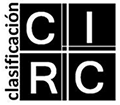"The Divinity School Address": Emersonian poetry and personality
DOI:
https://doi.org/10.18002/ehf.v0i19.4056Resumen
In this paper we propose to consider the role played by the concepts of poetry and personality in the `Divinity School Address.' From these concepts, a clearer picture will emerge of both Emerson and nineteenth-century Unitarianism. The Divinity School Address,' far from a declaration of war on Unitarianism, was an extension of the decades long Unitarian plea for fervor from the pulpit. Far from rebelling from the Unitarian sensibility and worldview, Emerson was expanding and fulfilling it. The `Divinity School Address' presented to a very sensitive audience Emerson's building rejection of the idea of a 'personal' God. This departure hito modernism was the most radical element of the address. Emerson gradually formulated a theory of the synonymous nature of God and the soul. Mis doctrine of the soul was a doctrine of criticism, and the soul must finally be understood as the insatiable passion for the Better, which enfolded a perpetual sense of the unachieved.Descargas
Métricas alternativas
Descargas
Publicado
Cómo citar
Número
Sección
Licencia
Derechos de autor 1997 Juan José Lanero Fernández

Esta obra está bajo una licencia internacional Creative Commons Atribución-NoComercial-CompartirIgual 4.0.
Los autores o autoras que publican en esta revista están de acuerdo con los siguientes términos:
- Los autores o autoras conservan los derechos de autoría de su trabajo y ceden de forma no exclusiva los derechos de explotación (reproducción, distribución, comunicación pública, transformación) a la Universidad de León, por lo que pueden establecer, por separado, acuerdos adicionales para la distribución no exclusiva de la versión de la obra publicada en la revista (por ejemplo, alojarlo en un repositorio institucional o publicarlo en un libro), con un reconocimiento de su publicación inicial en esta revista.
- Este trabajo se encuentra bajo la Creative Commons Attribution-NonCommercial-ShareAlike 4.0 International License. Puede consultarse desde aquí la versión informativa y el texto legal de la licencia.
- Se permite y se anima a los autores y autoras a difundir electrónicamente las versiones pre-print (versión antes de ser evaluada) y/o post-print (versión evaluada y aceptada para su publicación) de sus obras antes de su publicación, ya que favorece su circulación y difusión más temprana y con ello un posible aumento en su citación y alcance entre la comunidad académica.











